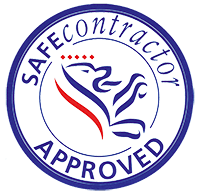The weather is definitely turning autumnal and many of us are succumbing to the temptation to turn the heating back on now that summer seems to be over. We do advise turning your heating on for a few minutes every month over the summer (which you may have seen if you’ve followed our summer plumbing tips or our blog on getting your plumbing and heating ready for autumn) but if you haven’t done that you may well find that you can experience problems with your radiators not heating up properly, or even not at all.
We can tell it’s the start of ‘heating season’ from the number of messages we’ve received having this issue with their radiators. We therefore thought it would be useful for people to give an overview of why this might be happening and what you can do about it.
If the heating doesn’t come on properly it’s worth doing some troubleshooting and ruling out any simple causes before you go calling out an engineer. Do the following first:
If these don’t resolve the issue then have a look at the following, depending on the nature of the problem:
This could be an issue with the pressure in your boiler. Check the pressure on your boiler and if it’s below 1 then it’s likely your system is struggling to function properly. Low pressure can be due to a number of things such as a leak somewhere or a faulty valve. If you can see an obvious leak somewhere then you need to call an engineer but if not you could try to top up the pressure yourself – follow the instructions for your boiler in the manufacturer’s handbook. If you don’t fancy doing this yourself, or you do it and it doesn’t work then call out an engineer.
This may be due to air locks within the radiators. Bleeding the radiators will usually resolve this and you can do this yourself. See our instructions here. If this doesn’t work, it may be sludge – see the item below.
Cold spots higher up the radiator could be a sign of sludge in the system. If this is the case then a powerflush will usually fix this. A powerflush involves sending chemicals into the system at high pressure to remove limescale and rust that can build up in your radiators over time. A heating engineer can do this for you.
This could be an issue with your boiler itself, especially if you have no hot water as well. Check the boiler to see if it displays an error code and check for obvious signs of problems such as leaks or no pilot light. You could try pressing the reset button but if that doesn’t work then it needs looking at by a professional heating engineer.
If you don’t want to experience these issues next year then there are a few things you can do to be proactive and try and avoid them. These include turning the heating on for short periods over the summer, having your boiler serviced at this time of year and adding inhibitor to your system to prevent sludge build up. See more details about getting ‘autumn ready’ here. (It’s not too late to do many of these things now!).
If you find that you do need a heating engineer to take a look at your system and are based in Yorkshire then give us a call on 0333 577 0151 or complete the form opposite.
Complete the form below and one of the Plumbcare.com team will get back to you as soon as possible.






Very efficient and friendly excellent service